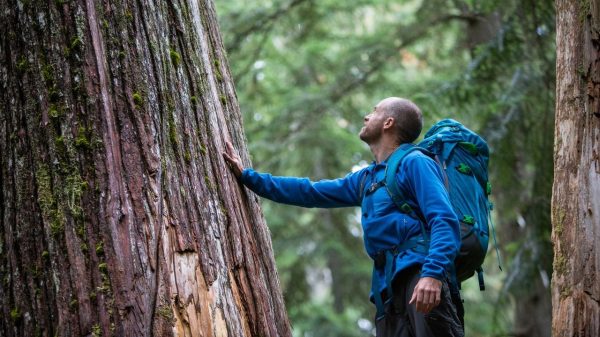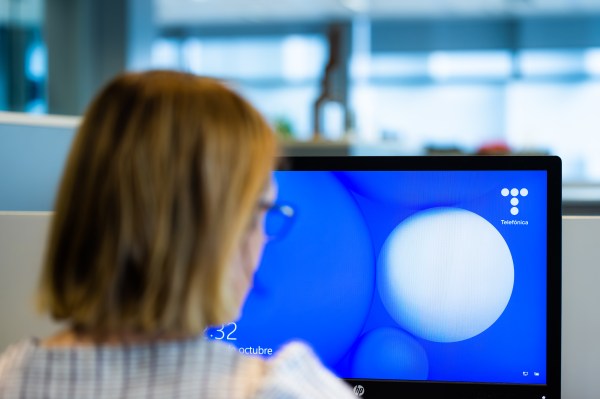Climate change is one of the greatest challenges facing humanity. The goal set by science to limit global temperature rise to 1.5⁰C to avoid the worst effects of climate change, and which was signed by all nations in the Paris Agreement, requires the involvement of all actors, from governments, private entities, investors, to society in its broadest sense. Emissions need to be reduced by around 45% by 2030 and net zero by 2050.
It is estimated that the film industry is responsible for between 2% and 3% of the planet’s carbon footprint, so it is important that it transforms itself and reduces its environmental impact in line with this major challenge. But the audiovisual industry also has a great capacity to influence the cultural frameworks within which people’s behavioural patterns develop and can therefore play a key role in the global goal of achieving net zero emissions, creating compelling visions of more responsible and sustainable consumption and lifestyles.
Telefónica is a group committed to sustainability, with all its actions based on the principles of the Global Compact and the UN Sustainable Development Goals (SDGs). We therefore work to minimise our impact on the environment and we are committed to decoupling our growth from our environmental footprint, bearing in mind that digitalisation is a key tool for tackling environmental challenges. Our strategy focuses on mitigating our impact, taking advantage of new opportunities and anticipating climate risks. Since 2015 we have reduced our operational emissions by 80% and our total carbon footprint by 45%, including our value chain, and we aim to be net zero emissions by 2040, including our value chain, 10 years ahead of international organisations.
In this area, Telefónica integrates sustainability into all its processes, through three ESG pillars: Environment (E), Social (S) and Governance (G) with the objectives of building a greener future; leaving no one behind and leading by example.
Sustainability is a cross-cutting element throughout the Group and is implemented at all levels of the company, which is why Movistar Plus+’s audiovisual productions follow this strategy.
In the television division, in 2021 we began pilot tests with the measurement of some programmes, we made our sets and our building efficient and in 2022 we began to work with our original series, requiring that each of them have an ad hoc Sustainability Plan.
Because our goal is to make fiction production compatible without compromising the environment, with the aim of improving processes and applying more and more criteria that have a lower environmental impact.
Each of the original series that Movistar Plus+ premieres from this year (2023) will have a Sustainability Plan. The aim is to minimise the environmental impact of Movistar Plus+ productions.
This Sustainability Plan brings together a set of sustainability measures for the production of a project during all phases of production: pre-production, filming and post-production.
Finally, it certifies that everything marked in the Sustainability Plan has been fulfilled following the GHG-CO2eq- ISO ISO 14067 or 14064 protocol, and an external auditor verifies these results.
Movistar Plus+ 5S
Likewise, in its commitment to society and diversity, Movistar Plus+ brings its original series closer to everyone. Thus, all its series are available with the three accessibility features of its Movistar Plus+ 5S service: sign language (LSE), subtitles for the deaf (SRD), -with audio and coloured annotations to differentiate the dialogue between characters-, and audio description (ADS), mixing the original audio with the descriptive narrative in the silences.
Some measures of the Sustainability Plan for The Immortal T2
With regard to the sustainability measures planned for this second season of The Immortal, it should be noted that there will be an Ecomanager, whose mission will be to manage and supervise the environmental management of the entire shoot, as well as to identify opportunities to reduce the impact of the production, always in accordance with the regulatory framework that applies in each circumstance. In addition, all members involved in the project have been trained and made aware of the sustainability measures to be carried out.
In the filming of this series, the use of natural light is encouraged as much as possible, as well as the use of connections to the electricity supply, trying to ensure that these sources come from renewable sources.
Awareness-raising campaigns will be carried out through posters on issues such as waste segregation, not printing unnecessarily, turning off equipment during breaks, as well as lights, using rechargeable batteries, etc.
There will also be water dispensers and refill bottles, and if bottled water is needed, the packaging will be 100% recycled materials.
For very hot days, fans made from sustainable materials will be distributed to all team members to reduce the use of fans, as well as shaded tents in non-dark colours.
In accordance with the principles of circular economy, the reuse of materials from other productions is encouraged, as well as the rental and purchase of second-hand materials, if necessary. Also for the different constructions that could be carried out, the materials used will have their sustainability guarantees. All materials that can be sensitive to a second life will be reused or donated.
For the catering, we will look for local and seasonal products. Menus with a high vegetable, fruit and legume content. As for the leftovers, social canteens will be contacted and they will be donated.
However, among the initiatives that will be carried out during the filming, two are particularly noteworthy, due to the risk of forest fires and the great drought that we have in Spain. For this reason, in the scenes with water, whether in swimming pools or car washes, most of the shots will be taken with several cameras and several angles without water beforehand. In addition, the possibility of using recycled water, naturally with the necessary microbiological treatments to guarantee the safety of the actors, is being considered. And for the scenes that are shot in a natural environment, such as forests and parks, a photographic report will be carried out before and after filming, in order to reduce the impact on the environment, and in the event of an accident, to mitigate the damage caused.
But as we have seen, the greatest impact of the footprint generated by this type of productions comes from mobility:
- urban locations have been encouraged to promote the use of public transport.
- the hired extras are shown the transport lines that they can use
- for the transport of materials, the most efficient routes have been studied.
- carpooling is encouraged.
- courier services will be provided by sustainable companies or companies with good environmental policies.
- the hiring of taxis, VTC or rental cars will be with hybrid or electric vehicles. Even the camera car, which also makes less noise for filming.














